-
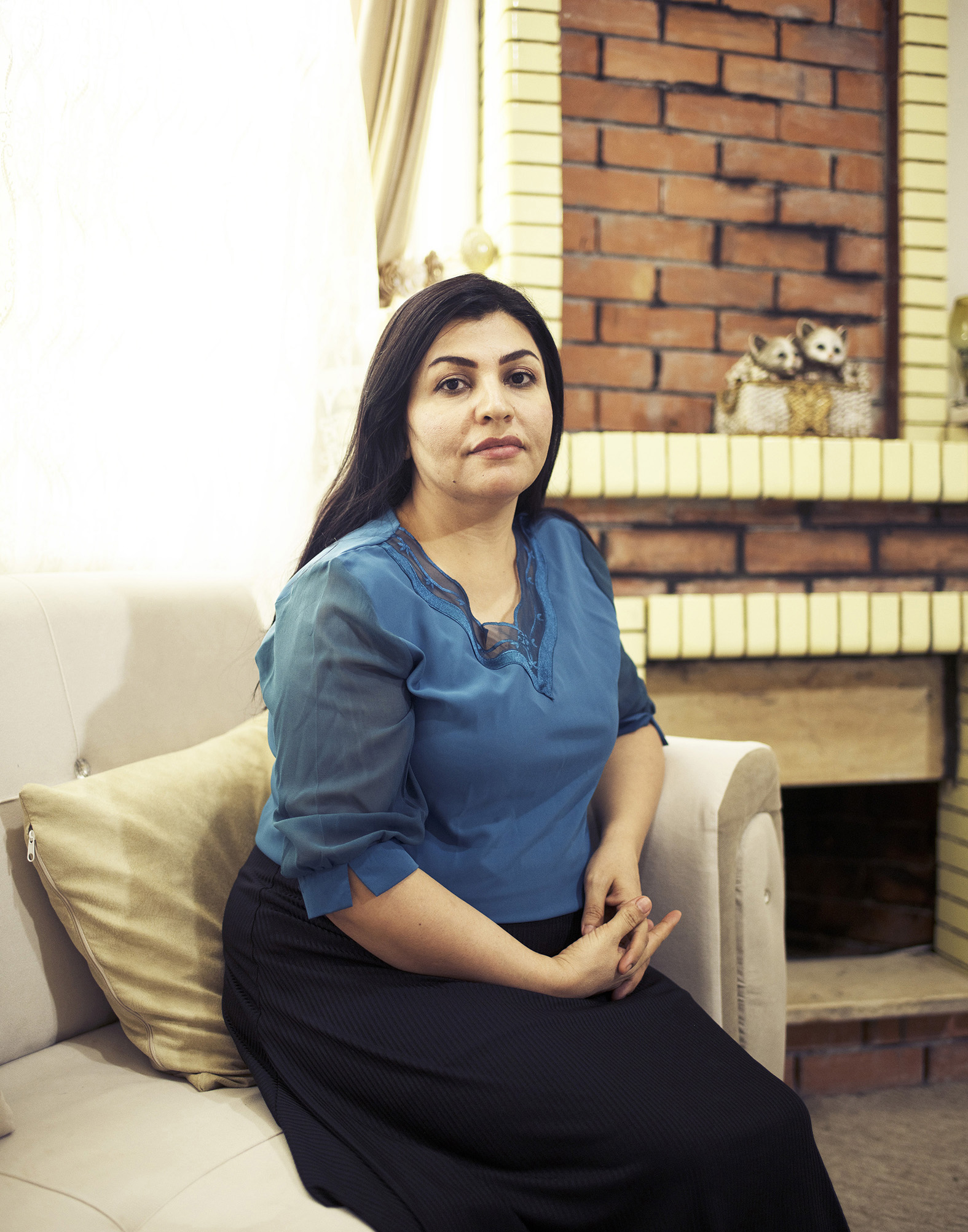
-
« My name is Bahre Hemeresh, I am 40 years old, I am married and I have two daughters, aged 3 and 4 years old. I come from Erbil, a city of Iraqi Kurdistan. I studied journalism and sociology. I have been a writer and journalist for 22 years, working on different subjects including feminism. I wrote articles and reports for many cases about women killed by their husbands, brothers, fathers or uncles. In 2015, I published my book « چیا نەگیشتنە ئەوانەی » ,« What became of those who didn’t reach the mountain? ». This book tells stories of 25 people from a Kurdish village, Shingal, took by Daesh in 2014. More than 5000 people have been captured. The men and boys were killed, and the women and girls were forced to become the wives of Daesh members. I visited different refugee camps to talk with the victims and collect stories.
I am a feminist activist. A member of the organization Kurdistan Women Union was created in 1952 with more than 30 women. I present conferences for women empowerment, and I am a part of a Radio program discussing topics on gender discrimination.
Last year, the organisation of cooperation between Kurdish and Swedish gave me an award for the woman of the year.
I started from nothing, I come from a very religious family and have since cut contact with them. My first fight ever was in my childhood home but now I live with my husband who is the sweetest person, he never discriminates and supports me in all my fights. I am fighting for equality and human rights. I wish for a future without differences of race, religion or gender. To be free we need to open social conscience, by working on politics, education and religion. We need to break the cultural rules installed in our country for too long. The situation here is better than in Iraq where there is still strong religious and tribal rules, however, some men in Iraqi Kurdistan don’t have any interest in women getting into power, so they are trying to avoid it. Thanks to our ongoing fight we are improving a lot in politics for women but it’s not easy to work on the cultural part and change the minds of people. »
-
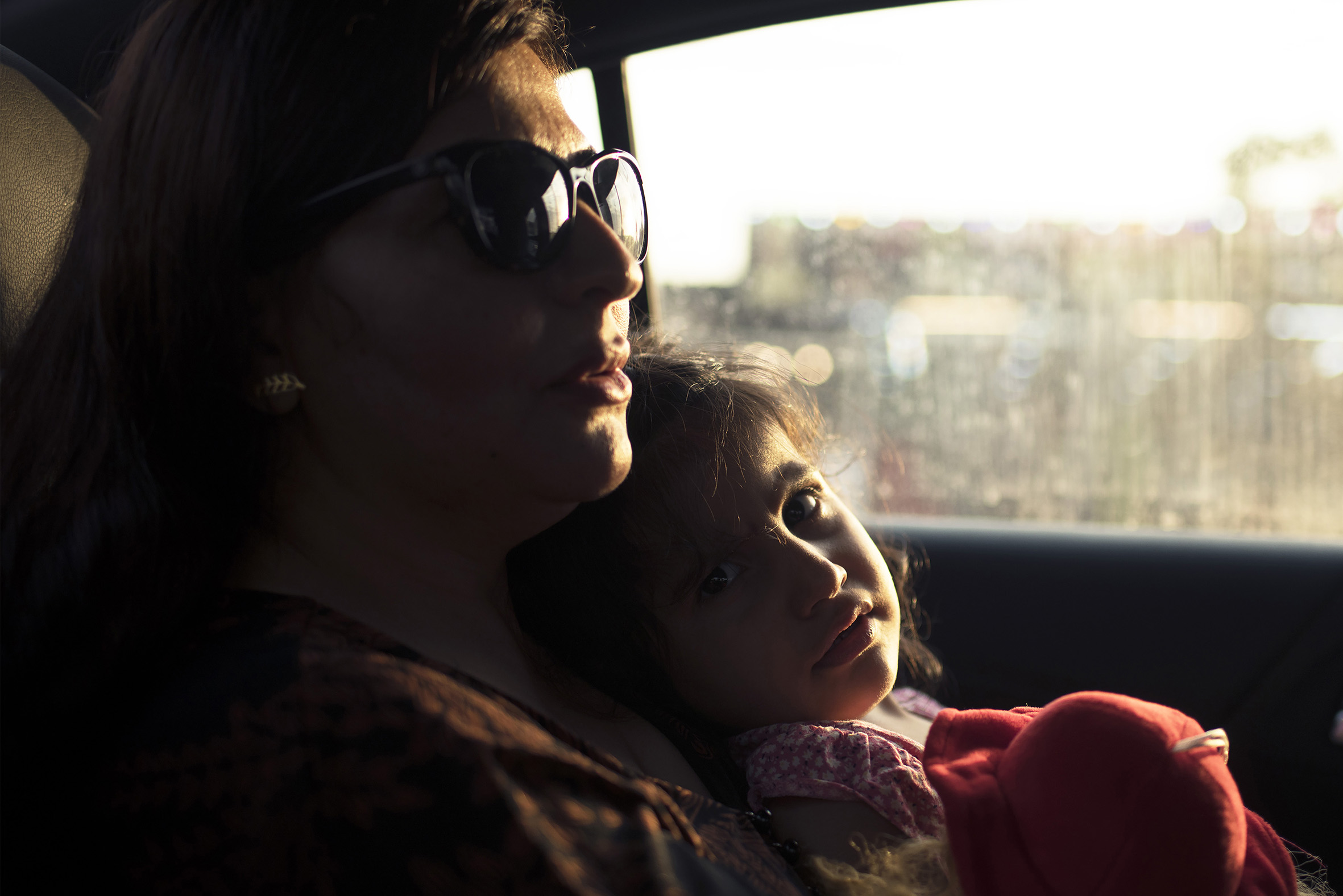
Bahre and her younger daughter on the way home
-
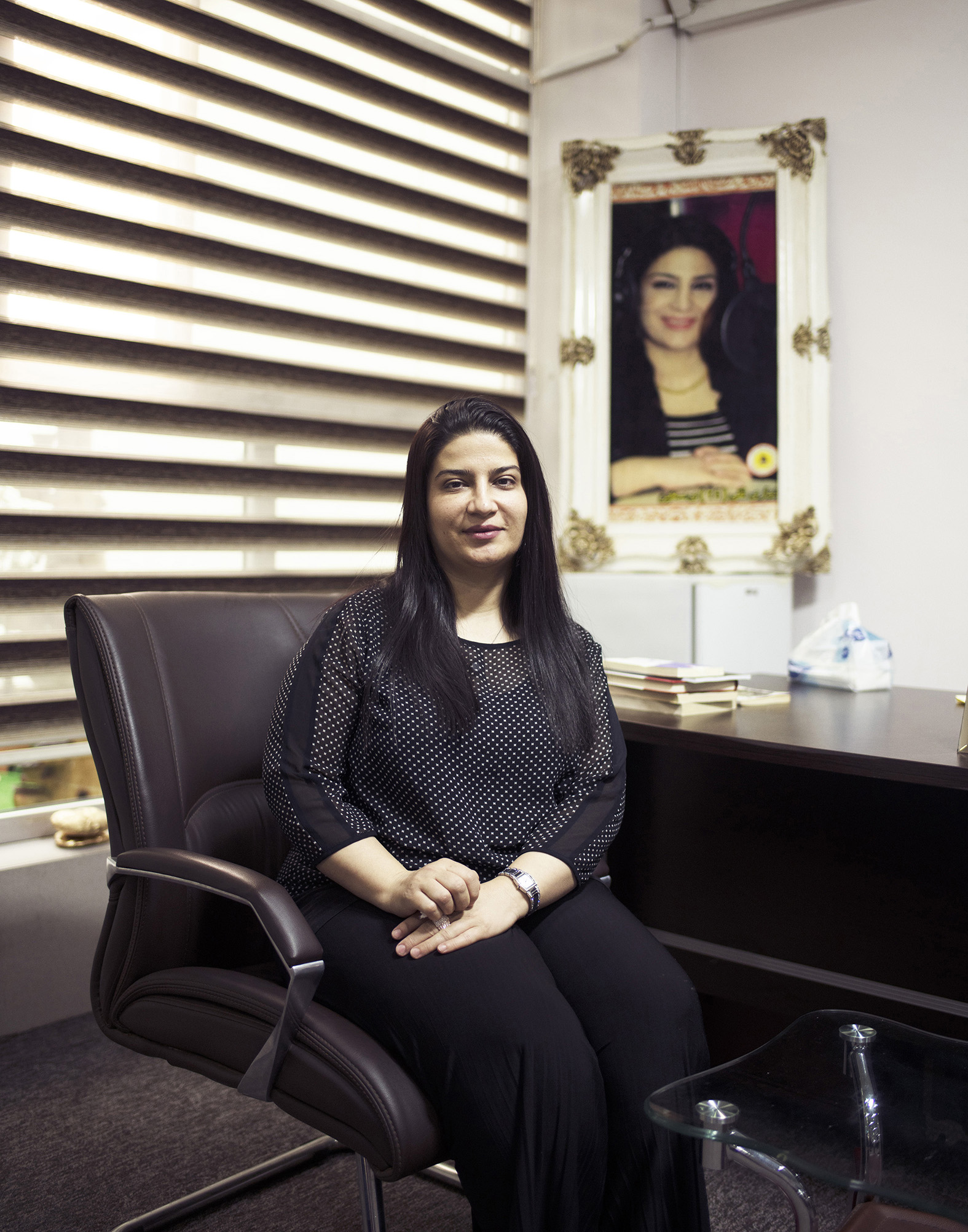
-
« My name is Nermin Sindi, I am the manager of Helin radio, which is the first radio station talking about social issues in Iraqi Kurdistan. We are a community radio station where everything belongs to women and we work on spreading our ideas to a maximum of women and our society in general. Our programs mainly talk about women’s work and gender discrimination.
-
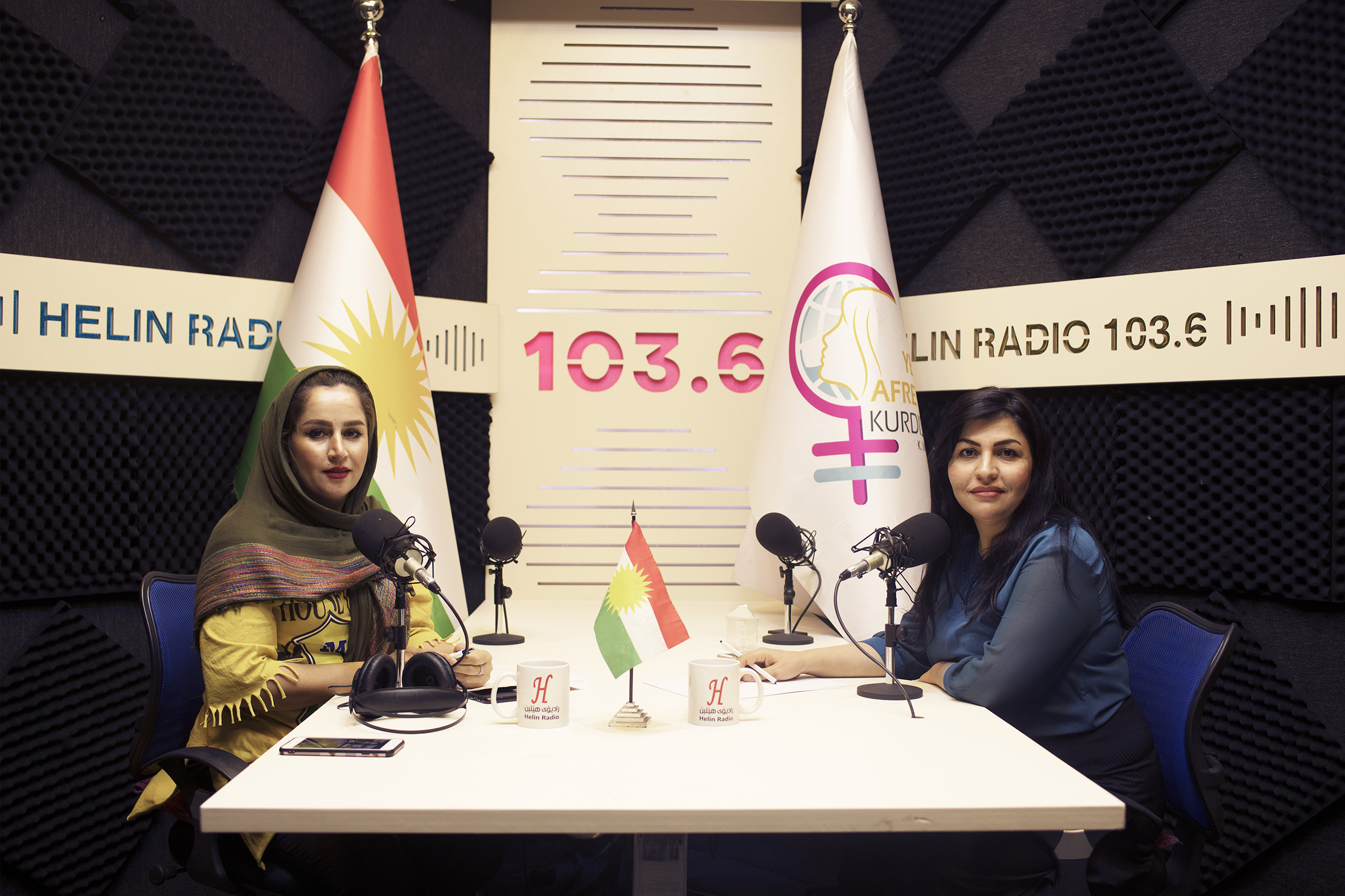
Présentation about gender inequalities for radio Helin
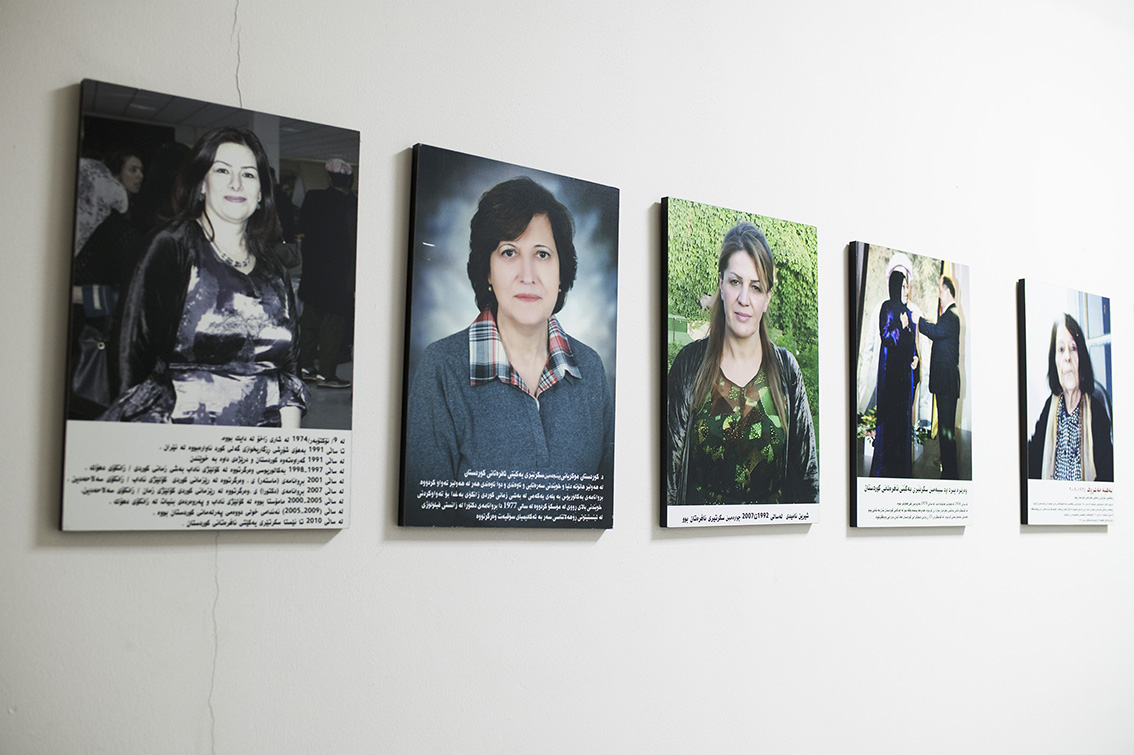
Pictures of the old directors of the organization Kurdistan Women Union
-
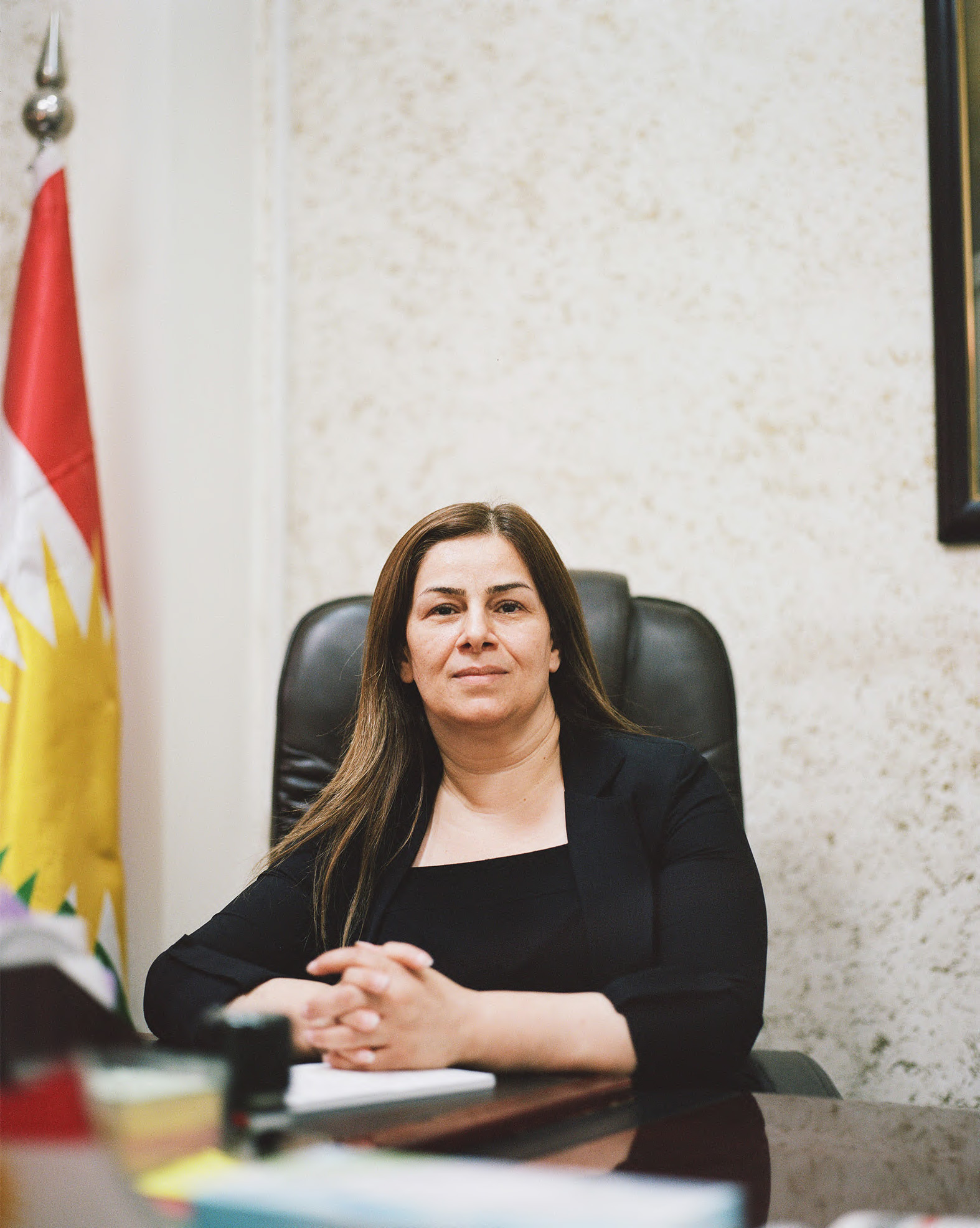
-
« I am Doctor Vian Suleiman and I have been the director of the organization Kurdistan Women Union for 11 years. In 2005 I got my PhD in linguistics. After this, from 2005 to 2009 I worked in the Kurdish parliament. During my time in parliament, we made many fundamental decisions that changed the status of women considerably. We changed several laws concerning women’s personal freedom/civic rights. We put restrictions on the number of wives that a man can have. Before a man could have four wives, now he can have a maximum of two and only if the first one is sick or cannot have children. If he chooses to have two wives, he also has to have the adequate finances required to take care of both. Another important decision was to allow a woman to be legally responsible for her daughter if the father cannot. Before, it had to be a man. If the father wasn’t able to, the grandfather or the uncle had to take his place looking after the daughter but now, the mother can. We also tried to reduce violence against women and help the victims.
We improved a lot in the political and social situation for women. Now women are politically and humanly equal to men, it just takes time to change the traditions, but now, legally women can do any work, for example in politics we have between 10-25% women and 30% in parliament. This was unthinkable before.
Thanks to our organization; Kurdistan Women Union, we have created institutional mechanisms to protect women from violence and educate them in society. »
-
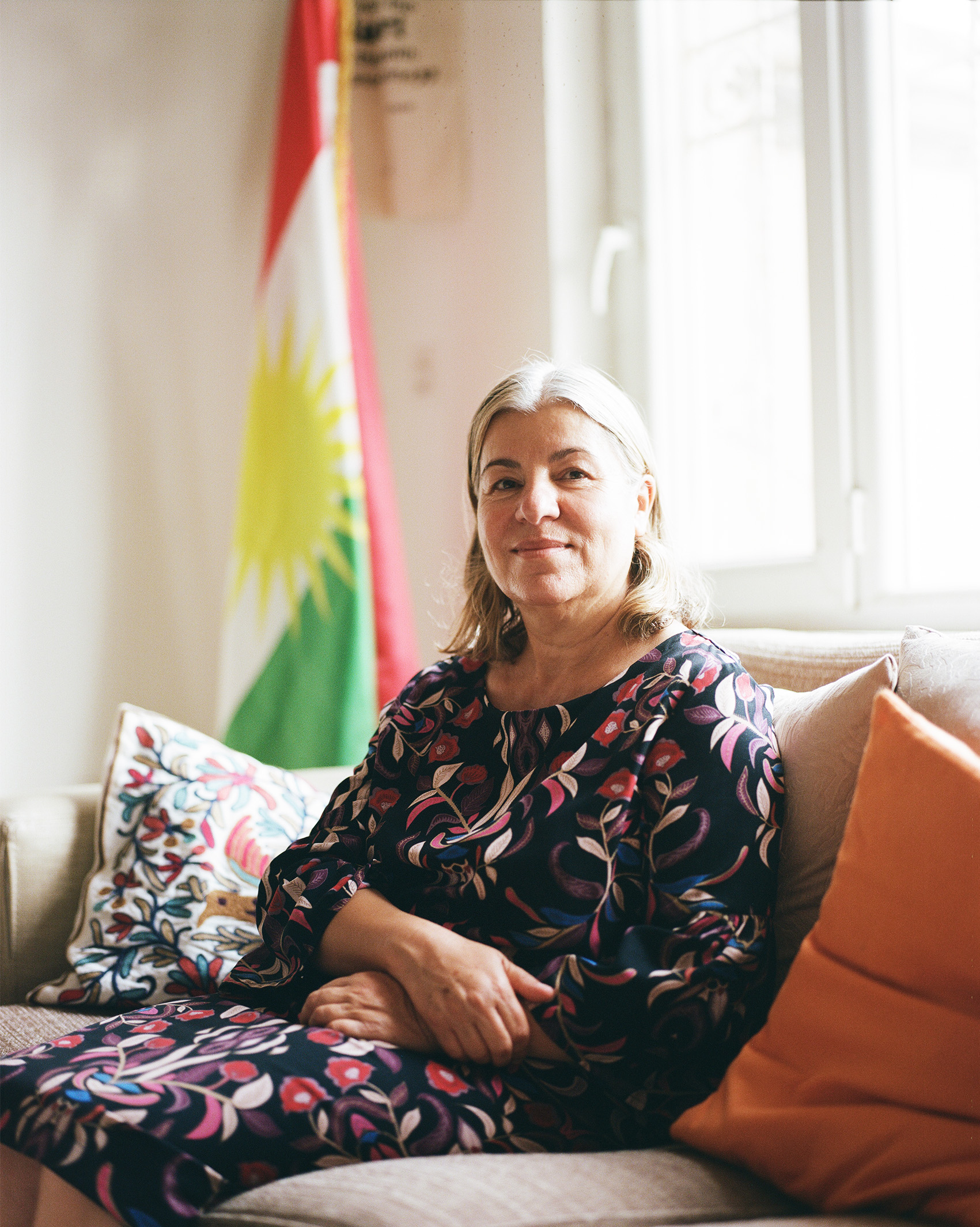
-
« My name is Bahre Ali. I am originally from Halabja, a city in the south of Kurdistan but after the chemical attack in 1988, my family left for Erbil. I graduated in translation, gender studies and laws, and I have always been à feminist since a young age, I learnt a lot from my mother. Since 12 or 13 years old, I was questioning the differences and inequalities between men and women in our societies. I spent years reading Nawal al-Saadawi’s books; she was an Egyptian feminist doctor, writer, and a big inspiration for many women in the Arabic world.
I am the director and co-founder of the NGO « Emma », which is a feminist organization for human development. Since 2013, our group of 50 or 60 women, coming all from different cultures, religions and political orientations are working towards gender equality. Our main actions are turning around the health and the mental health, we are helping survivors of ISIS’s violence (Daesh). Many women of our organizations are survivors. We help them to go back to their studies and start a new life. We also have a video program about gender inequalities on Youtube.
Our main actions are centred on the rehabilitation and protection of female survivors, but we also help women who suffered from domestic violence or sexual violence. We have seven reception centres and also a mobile team visiting the camps.
We try to change the mentality of people always blaming women for what happened to them. We lead mediation programs with families, we are doing conferences and seminars to talk about women rights, and we try to work the closer as possible with medical, social workers, investigators or other people in direct contact with survivors to teach them how to consider the mental health of the victims.
We also work in the political area to increase the power of the decision of women by encouraging women electoral campaigns and supporting actresses of the political life. We work directly with the different ministries like the ministry of education to support the capacities of the gender unite, or the ministry of social affairs to help to create development plans considering women. We think the political part is the most important to change our society.
Since 1991, women activists are doing a lot in Kurdistan, even in some periods where the situation was very unstable. Many laws have been changed, as the question of the honour crimes: Before 1996 in Suleimani, and 2005 in all Kurdistan, honour crimes against women by men went unpunished. It wasn’t considered a crime for a man to kill a woman if their honour was in danger. But thanks to our fight, now crimes against women are punished as any other crime.
Eventually, I would just say to resume all our progress that today, people in Kurdistan are considering the issue of women’s struggle, which is one of the biggest accomplishments for us, most of the people understood we had to change the system, and it’s already a big step on the path of equality. »
-
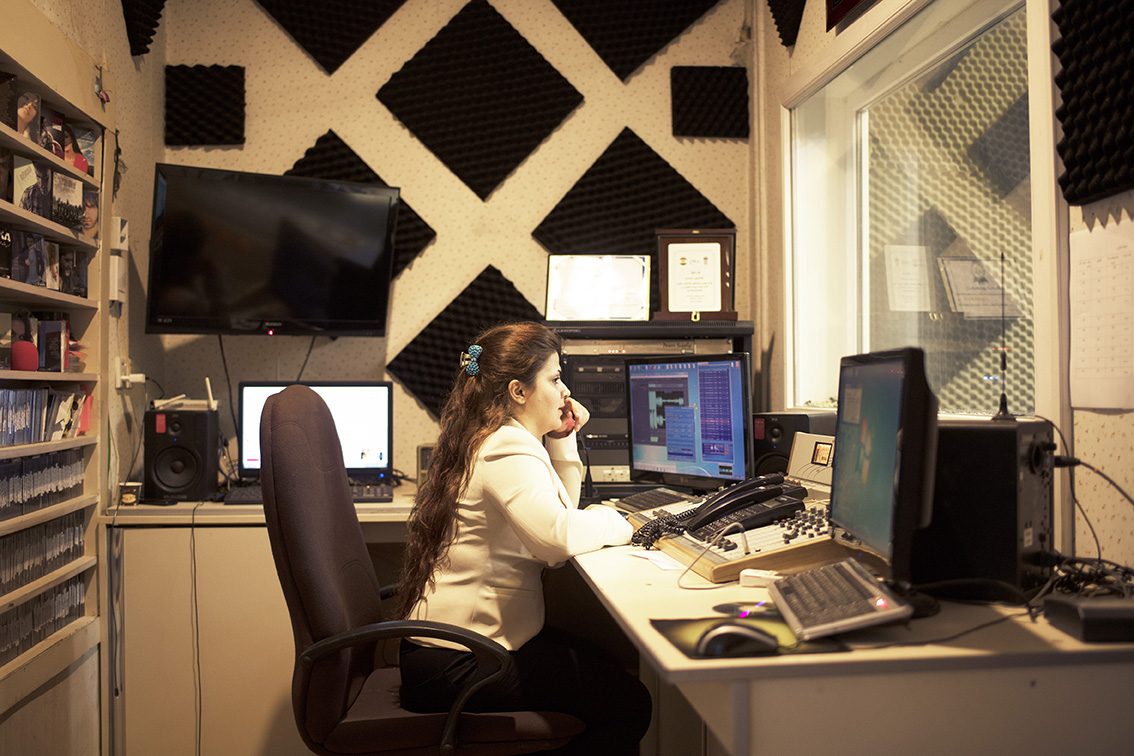
Backstages of Helin Radio
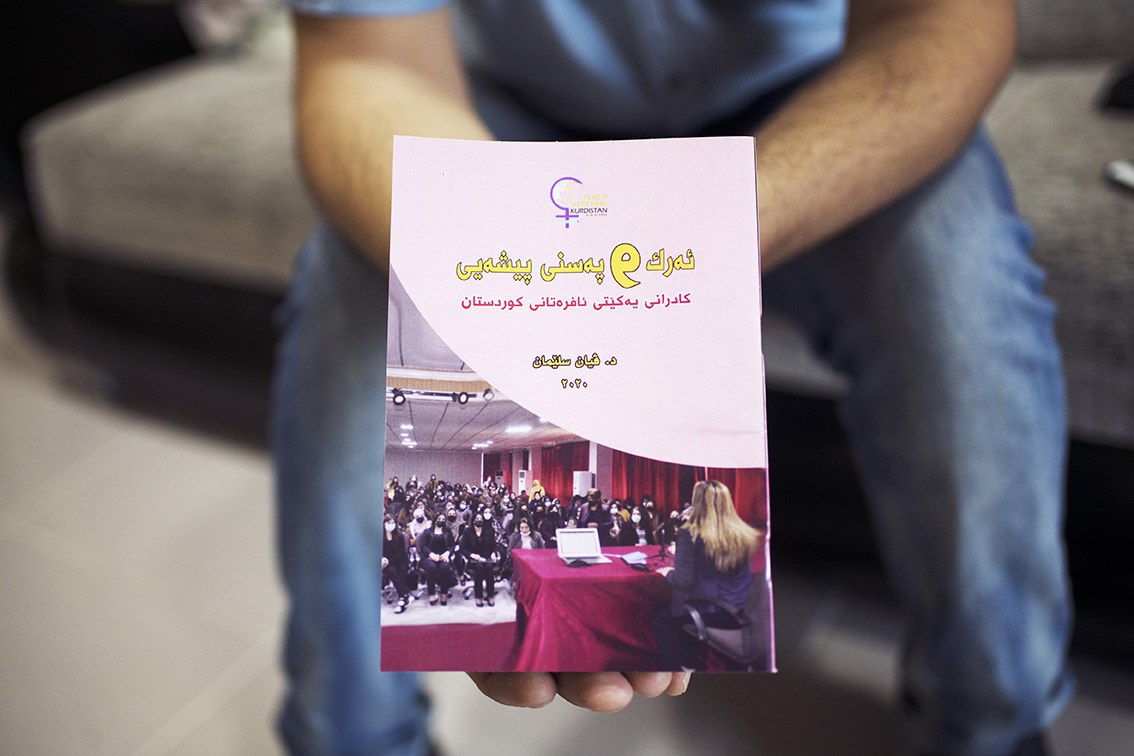
Book « Duty and Job Description of Kurdistan Women Union »
-
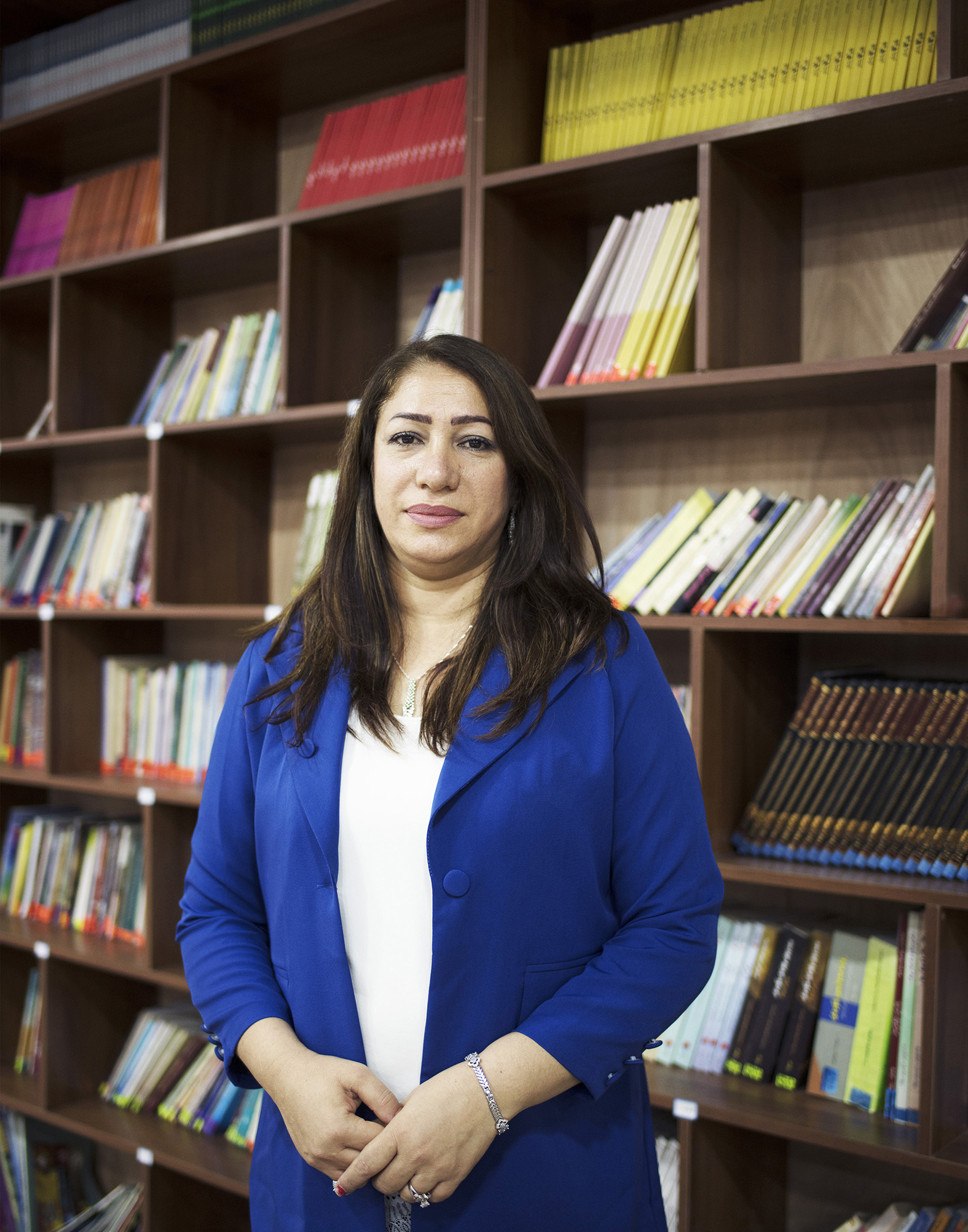
-
« My name is Zahela Yousef, I am a part of the organization Kurdistan Women Union and I am at the head of the area looking for empowering women with direct teaching. We give different courses, we teach manual works, languages, how to use a computer and we propose a different way of thinking from what many women always heard and saw growing up here, in Iraq. I would say the main purpose of our course is to teach awareness, equilibrate social life codes, self-confidence, or global sociology. We try to develop the mind of the people in the country and explain to women that it’s possible to have a life and a family at the same time. »
-
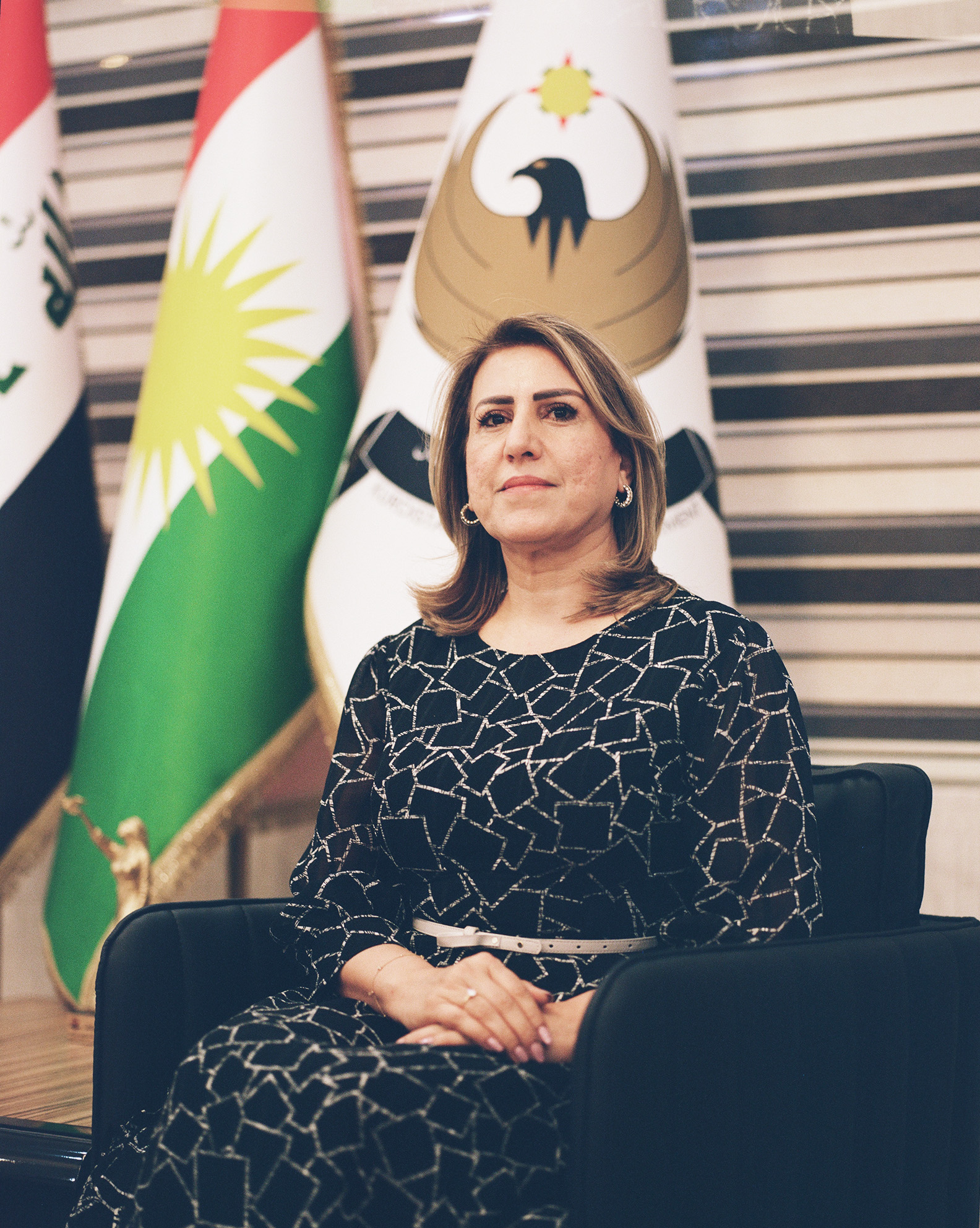
-
Dr. Khanzad Ahmad is the Secretary General of the High Council of Women’s Affairs of the Kurdistan Regional Government (Iraq). Dr. Khanzad is also directing the coordination and Public Affairs of the Independence Commission of Human Rights and was the Director of the Monitoring Human Rights Violations Directorate at the Ministry of Human Rights.
The High Council of Women’s Affairs of the Kurdistan Regional Government has for mission to protect women rights in Iraqi Kurdistan. The Council’s members are working on the social, economical and political empowerment of women.
-
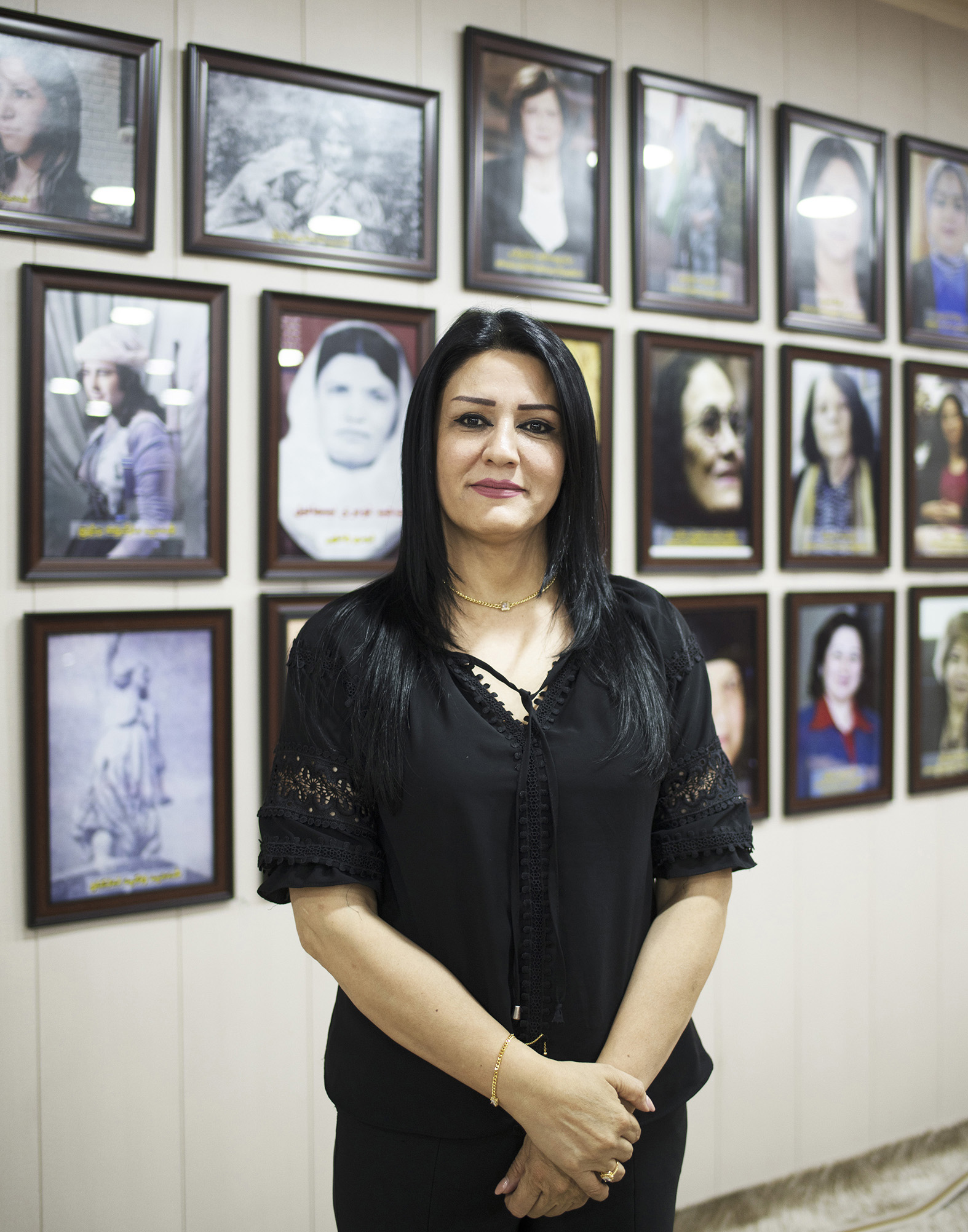
-
« My name is Payman Taha, I am proposing to women in need of social and legal help. Most of the women coming to us have been suffering from domestic violence, but it can be any type of violence. We help women to overcome complicated situations like divorce, or women confronted with a handicap, a sickness, or in a situation of extreme poverty for example. We try to be there when the whole society lets them on the side. »
-
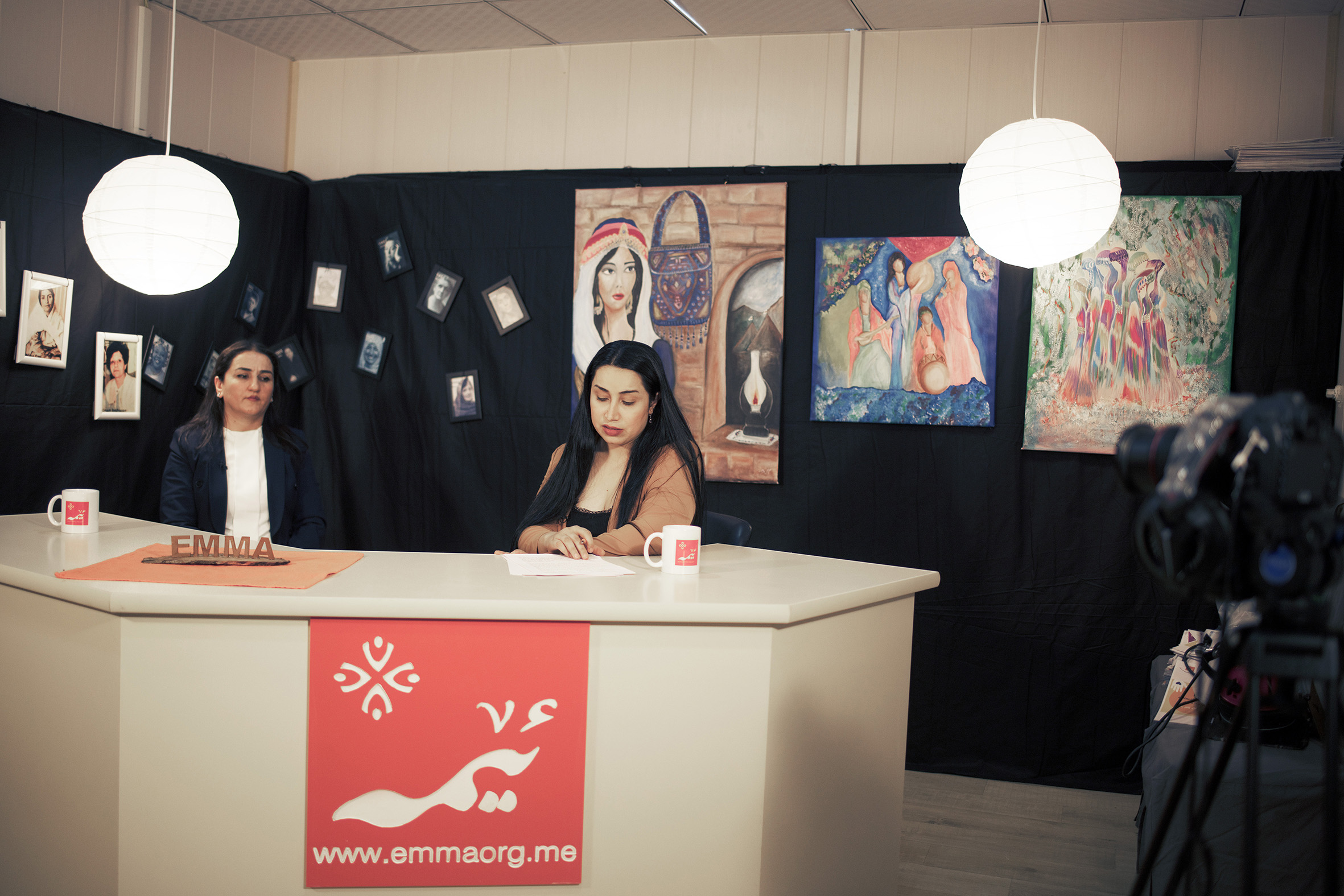
Set up of a YouTube video about women survivors of ISIS (Daesh) violences
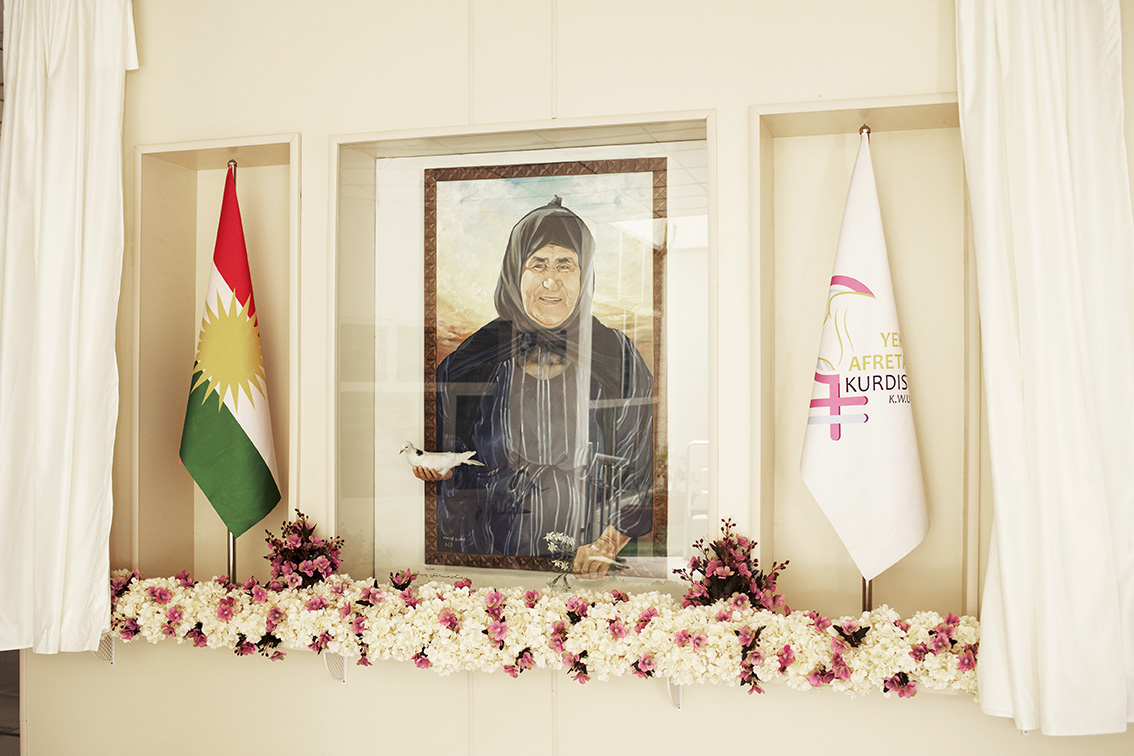
Portrait of Daikaisha, « the mother of martyrs » who saw her three sons killed in ISIS’s war, in the offices of the organization Kurdistan Women Union
-
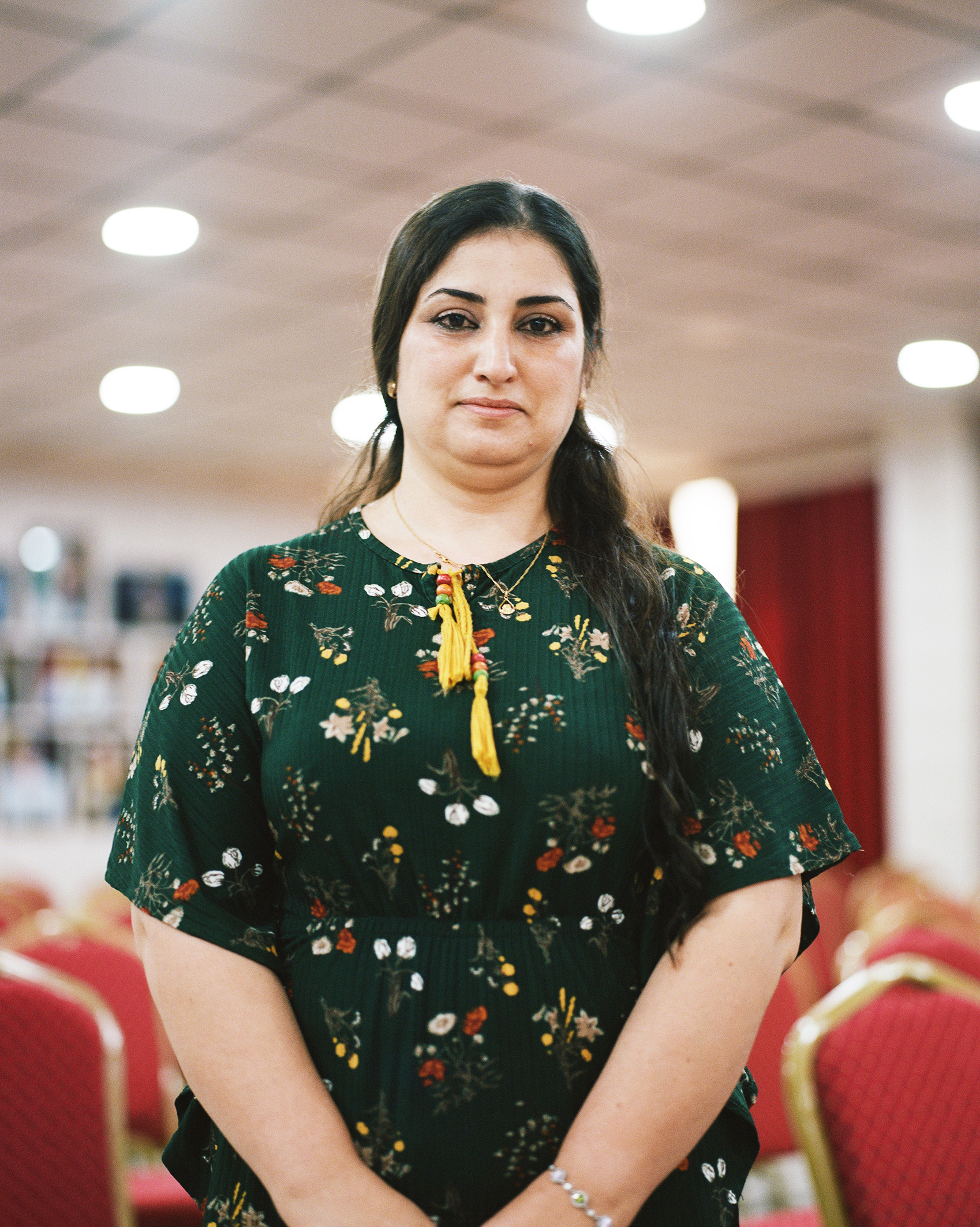
-
« My name is Ayhan Adnan, I am the manager of the centre for cultural awareness linked to the organization; Kurdistan Women’s Union. Our objective is to create visibility for women in the arts. We organize events for writers, singers or any woman producing content and struggling to make her voice heard. »
-
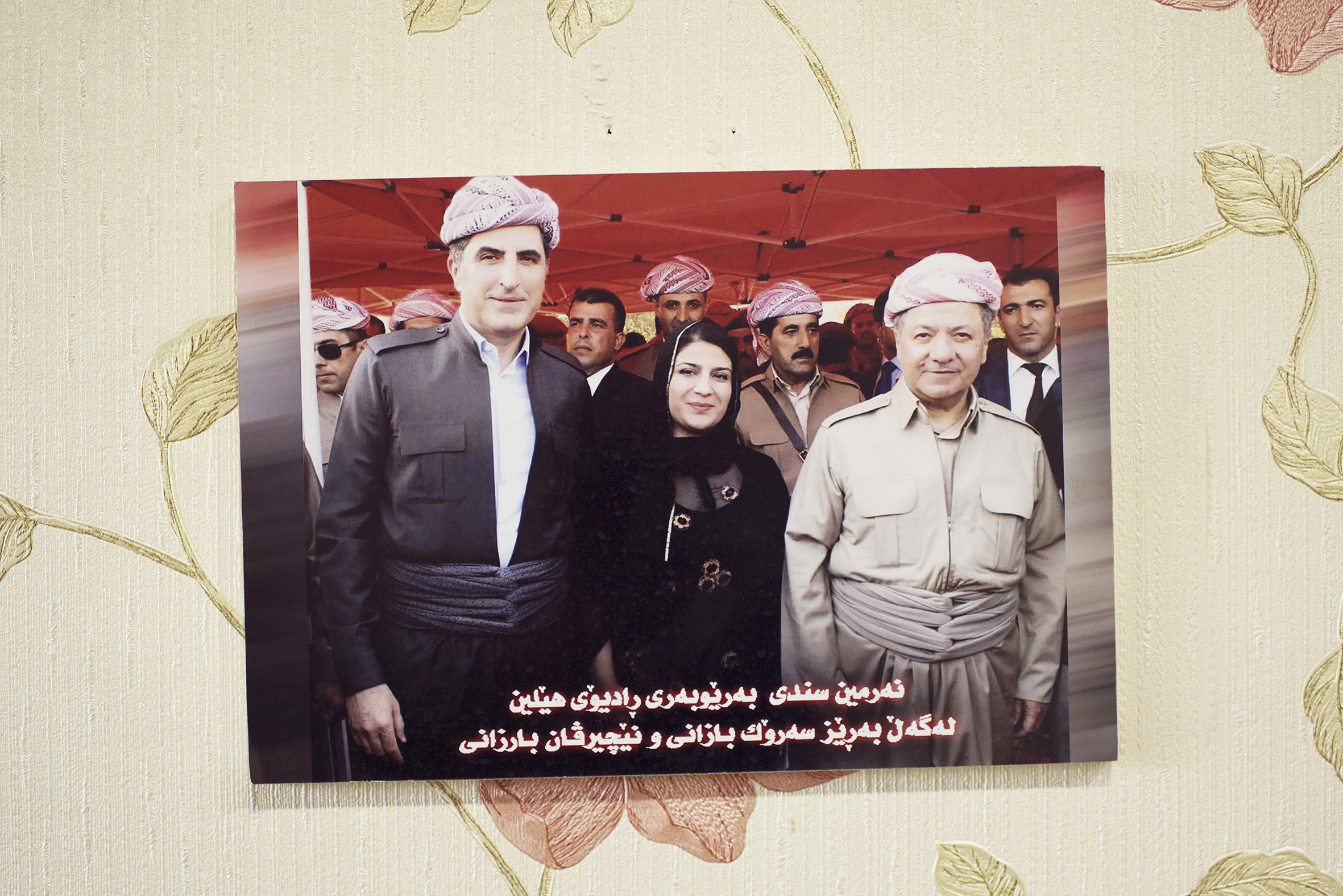
Portrait of Nermin Sindi, the manager of Helin radio with the president of Kurdistan and the president of PDK.
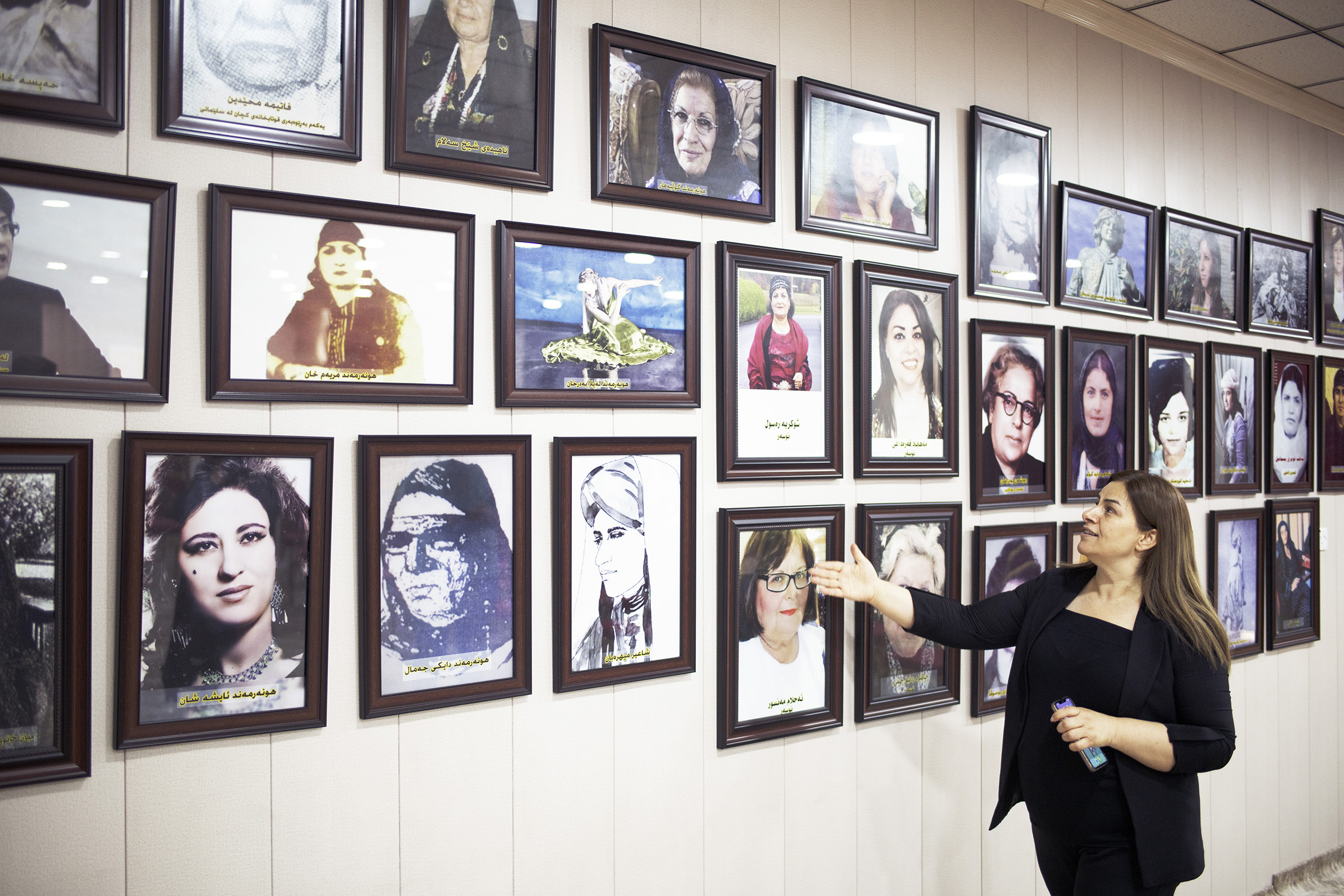
Doctor Vian Suleiman presenting a wall of women who marked the history (artists, politicians, activists…) in the offices of the organization Kurdistan Women Union.